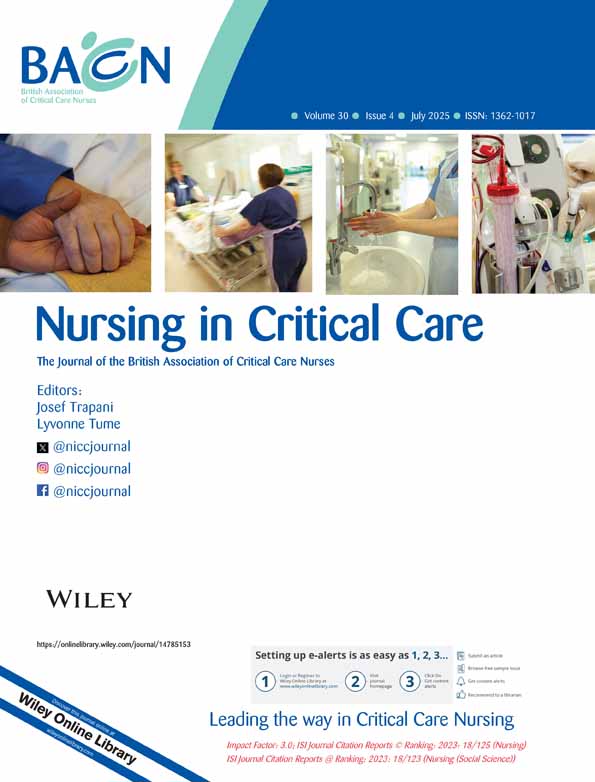Frailty and fear of death among geriatric patients in critical care units: A mixed methods study
Abstract
Background
Frailty, a geriatric syndrome characterized by decreased resilience, is a known risk factor for mortality in critical care settings and can significantly impact a patient's perception of their own health and prognosis.
Aim
To explore the relationship between frailty and fear of death in geriatric patients admitted to critical care units.
Study Design
A convergent parallel mixed methods design was applied.
Methods
Data were collected from 247 geriatric patients in critical care units from March 2023 to February 2024. Quantitative data included clinical frailty score and death anxiety questionnaire. Qualitative data were gathered through semi-structured interviews with a subset of 34 participants. Quantitative analysis involved descriptive statistics, correlation analysis and multiple linear regression. Qualitative data were analysed thematically using Braun and Clarke's approach.
Results
Quantitative analysis revealed a positive significant correlation between frailty and death anxiety (r = 0.19, p = 0.003). Additionally, regression analysis identified age (B = 0.69, 95% CI [0.22, 1.15], p = 0.004), lack of social support (B = 2.88, 95% CI [0.28, 5.47], p = 0.030), lower income (B = −5.33, 95% CI [−9.03, −1.63], p = 0.005) and higher frailty scores (B = 0.83, 95% CI [0.10, 1.56], p = 0.025) as significant predictors of increased death anxiety. Qualitative findings yielded four key themes: the impact of frailty on perception of mortality, the psychological and emotional dimensions of fear of death, the role of the critical care unit environment on fear of death and coping mechanisms and support.
Conclusion
Frailty in geriatric critically ill patients heightened death anxiety due to physical decline, existential worries and the overwhelming critical care environment.
Relevance to Clinical Practice
This study can help nurses provide more personalized care to geriatric patients by addressing both their physical frailty and psychological needs related to fear of death. This, in turn, can improve the quality of care and enhance patient satisfaction.
CONFLICT OF INTEREST STATEMENT
There are no conflicts of interest to declare.
Open Research
DATA AVAILABILITY STATEMENT
The data that support the findings of this study are available from the corresponding author upon reasonable request.




